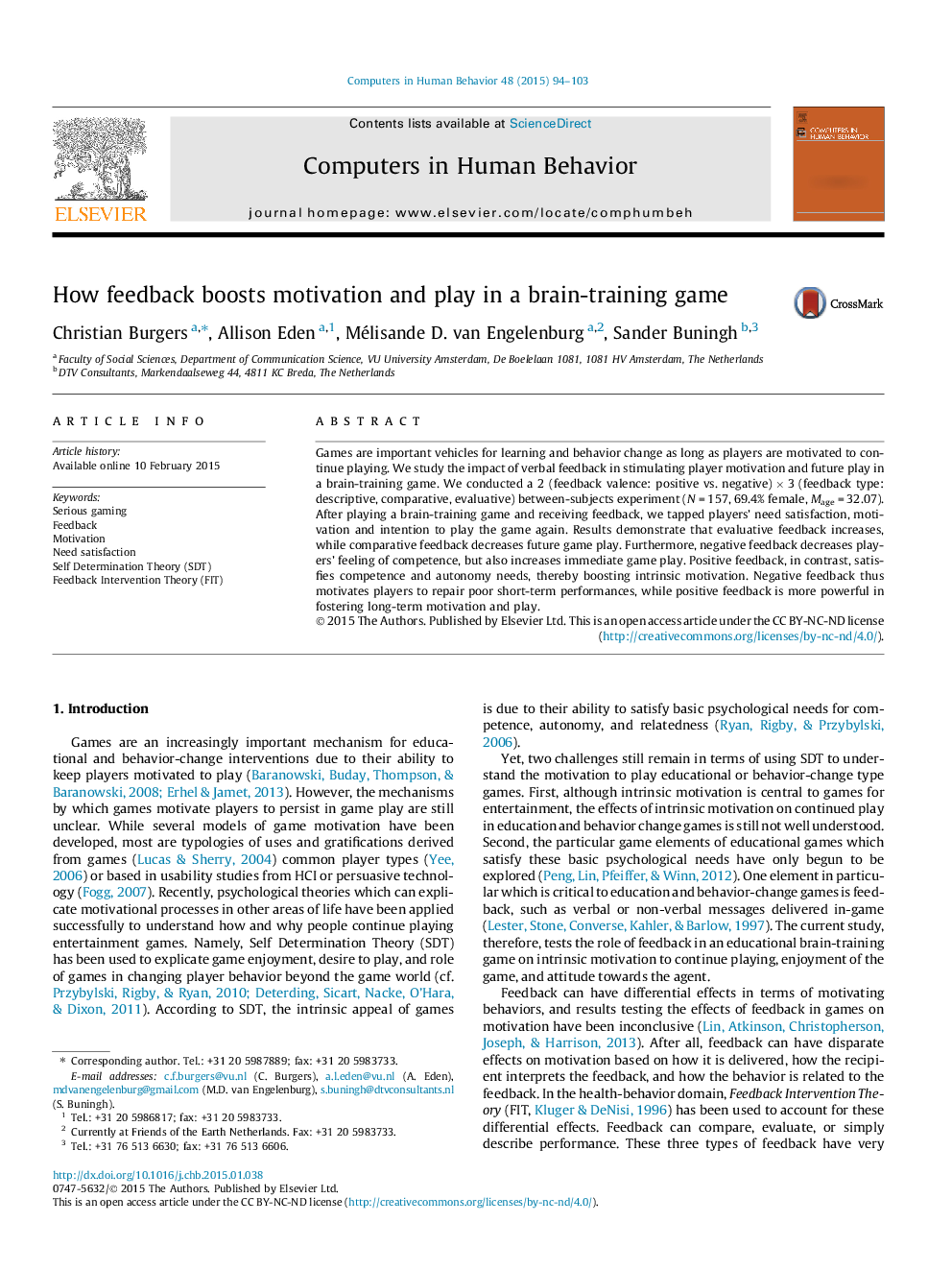| Article ID | Journal | Published Year | Pages | File Type |
|---|---|---|---|---|
| 6838285 | Computers in Human Behavior | 2015 | 10 Pages |
Abstract
Games are important vehicles for learning and behavior change as long as players are motivated to continue playing. We study the impact of verbal feedback in stimulating player motivation and future play in a brain-training game. We conducted a 2 (feedback valence: positive vs. negative) × 3 (feedback type: descriptive, comparative, evaluative) between-subjects experiment (N = 157, 69.4% female, Mage = 32.07). After playing a brain-training game and receiving feedback, we tapped players’ need satisfaction, motivation and intention to play the game again. Results demonstrate that evaluative feedback increases, while comparative feedback decreases future game play. Furthermore, negative feedback decreases players’ feeling of competence, but also increases immediate game play. Positive feedback, in contrast, satisfies competence and autonomy needs, thereby boosting intrinsic motivation. Negative feedback thus motivates players to repair poor short-term performances, while positive feedback is more powerful in fostering long-term motivation and play.
Related Topics
Physical Sciences and Engineering
Computer Science
Computer Science Applications
Authors
Christian Burgers, Allison Eden, Mélisande D. van Engelenburg, Sander Buningh,
